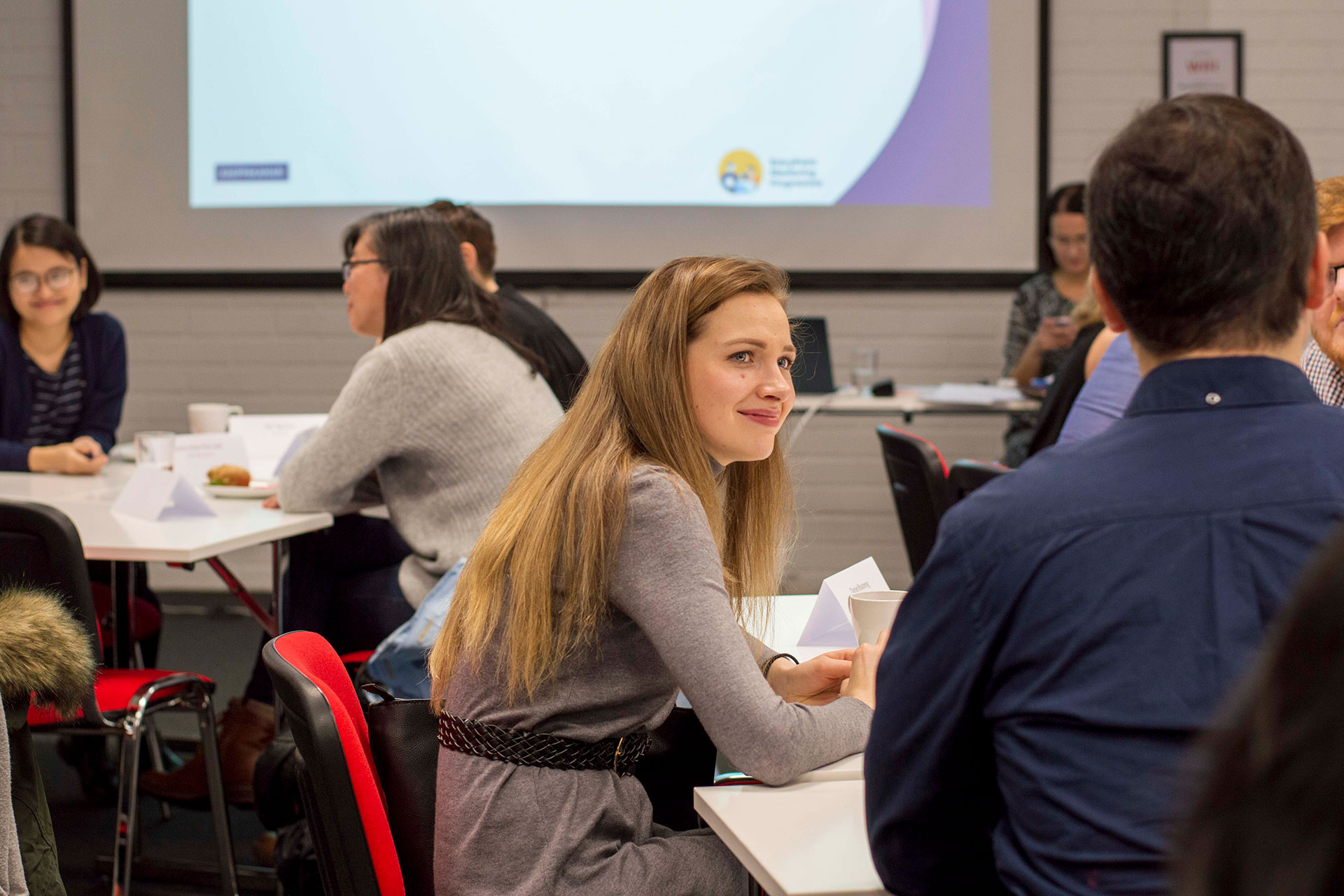You can read article in finnish Työperäisessä maahanmuutossa koko ketju kuntoon
One of the key actions of the new government will be the promotion of work-based immigration. There are no other options; the current net migration of approximately 15,000 people per year is not sufficient to compensate for the low birth rate.
According to ETLA Economic Research, the current age structure in Finland requires a net migration of about 44,000 people per year to secure economic growth and the dependency ratio.
“Net migration is not enough. It is also important to increase the employment rate of immigrants. This must be pursued by improving the services provided by the authorities, and companies must also be better equipped to employ foreign-language employees,” says Markku Lahtinen, Director of the Helsinki Region Chamber of Commerce.
In his opinion, the employment rate of the foreign-language population should be 80% instead of the current 50%. This should also be the targeted employment rate of native Finns.
Winds of change in permits
A key role in work-based immigration is played by the Finnish Immigration Service, which makes decisions on permits and has recently undergone significant changes. The processing times for work-based and study-based permits have accelerated considerably despite the increase in the number of applications.
“In accordance with our new strategy, we aim for an excellent customer experience and top-notch service even in European comparison,” says Elina Immonen, Deputy Director General of the Finnish Immigration Service.
Those who come to work from outside the EU must apply for a residence permit in Finland. According to Immonen, the residence permit processing times have been accelerated by the new guidelines and the better management of the Finnish Immigration Service’s processes.
The work also goes faster thanks to automation and the more efficient profiling of permit applications. All residence permit applications used to go through the same strenuous process, which required extensive background checks.
These days, decisions on things like permits for specialists are largely made by a software robot if no risks emerge during the processing.
“At its best, the system automatically checks more than 30 registers and reads various data provided by the customer or employer,” Immonen says.
According to Immonen, the automation of permit processes is proceeding progressively and new features that make work easier are being added to the systems all the time.
“Last year, we automated more processes than ever before.”

Permits for specialists in nine days
Immonen says that the average time for processing a residence permit for specialists is currently nine days. The Finnish Immigration Service processes other work-based residence permits on average in a month or two months, depending on the type of permit.
Automation frees up human resources to deal with applications that require more in-depth clarification.
Immonen points out that legality and security remain cornerstones of the Finnish Immigration Service’s operations, but the focus in developing operations is now on smooth and transparent customer service.
“Our key objective is to further improve the efficiency of the processes and customer communications. This means that customers can get more information from the Finnish Immigration Service on the overall process and the processing status of their application.”
Strong need for electronic identification
Despite the more agile operations of the Finnish Immigration Service, it can still take months for a jobseeker wishing to come to Finland to get a residence permit.
Markku Lahtinen, Director of the Helsinki Region Chamber of Commerce, says that the worst bottleneck is often in the applicant’s country of origin.
“The residence permit must be applied for in person at a Finnish mission. This is an unreasonable requirement, as getting an appointment can take months.”
Lahtinen points out that the network of Finnish missions is fairly sparse worldwide. The jobseeker may have to travel a long distance or even to a neighbouring country to find the nearest Finnish mission.
“There should be an electronic identification system for residence permit applicants to smoothly kick off the process.”
Lahtinen says that this would remove the need for most applicants to visit a Finnish mission to prove their identity in person.
Applicants could prove their identity, for example, at a mission of another EU country.
With electronic identification, a person could take care of other first-stage matters with the authorities before even arriving in Finland.
The information provided in connection with the identification could later be used in all other permit and settlement services across the organisational boundaries of public authorities. This would speed up things like obtaining a tax card or various registrations.
Legislative changes to speed up immigration
Electronic identification would require changes in the legislation. In Lahtinen’s opinion, other regulations that slow down work-related immigration should also be reviewed as soon as possible.
One of them is the income requirement in immigrant family reunification.
“At the moment, the required gross salary is about €3,500. The requirement is too high for a construction worker, let alone a practical nurse,” Lahtinen says.
He thinks the income requirement should also take into account longer-term career development. People who come to Finland often start at a lower income level, but their salary increases as they gain work experience. In addition, the accompanying family members tend to seek employment and raise the family’s income level.
An amendment to the Aliens Act entered into force in February, enabling the more extensive use of automation in support of decision-making.
In Lahtinen’s opinion, further legislative changes of this nature are needed. Now is not the time to merely wait for the comprehensive reform of the Aliens Act, which a report prepared under the lead of the Ministry of the Interior recommends.
“Completing the comprehensive reform would take years. We cannot afford to wait for it – in the meantime, we must proceed with smaller changes to speed up permit processes, facilitate sensible cooperation between authorities and help companies get employees to Finland more quickly than at present.”
Lahtinen thinks that the future government programme should include several items to promote work-related immigration.
One such issue is the labour market test (mechanism to ensure migrant workers are only admitted after the employer has unsuccessfully searched for workers in Finland) for workers coming from outside the EU, which has long chafed companies suffering from labour shortages.
“The labour market test should be completely done away with. However, if that is not possible, then at least the Uusimaa region should have a trial of operating without the labour market test for a fixed period of two years,” Lahtinen says.
Lahtinen also counts a jobseeker visa among the necessary reforms. It should be made available so that applicants can come to Finland to search for work already during the processing of their residence permits.

Need to improve the entire chain
Lahtinen considers it essential to improve cooperation across administrative boundaries. Currently, the performance and target guidance of Finland’s immigration are disorganised, and overall coordination is conspicuous by its absence.
“The entire chain from attraction to smooth residence permits and settlement services is not in order. Fixing it requires not only a reform of administrative cooperation between the authorities, but also a major change in attitude so as not to see security threats where there are none.”
Lahtinen thinks that the government should take a clear ownership of work-related immigration and set goals towards which all ministries and agencies should work together.
In 2020, the management of work-based immigration was transferred from the Ministry of the Interior to the Ministry of Economic Affairs and Employment with the aim of linking labour immigration more closely to employment, education, business and innovation policy.
The practical responsibilities are divided in such a way that the missions of the Ministry for Foreign Affairs receive residence permit applications and interview the applicants, while the Employment and Economic Development Offices of the Ministry of Economic Affairs and Employment make the partial decision for the permit, which includes the assessment of the availability of labour, the terms of employment and of the employer’s and employee’s prerequisites.
The Finnish Immigration Service, which is under the Ministry of the Interior, makes the actual decisions in all residence permit matters.
More responsibility for the Finnish Immigration Service
In Lahtinen’s opinion, the Finnish Immigration Service could be developed into a network manager whose key task would be to promote work-based immigration and increase the employment rate of foreign-language speakers.
“The Finnish Immigration Service also has the best information on the skills already available in Finland, for example at reception centres.”
Elina Immonen sees increasing the responsibility of the Finnish Immigration Service as a good fit.
“While we do not want to start telling other authorities what to do, the role of a network manager would suit us in coordinating and taking overall responsibility for the customer journey. We are the only authority that focuses on immigration,” Immonen states.
Lahtinen says that the performance and target guidance of the Finnish Immigration Service must be closely linked to the needs of the labour market. This makes the Ministry of Employment and the Economy a natural choice to guide the Finnish Immigration Service.
It is also necessary to link education more closely to the whole, and so the Ministry of Education and Culture will also play an important role.
“For example, by directing funding, the Ministry can set incentives for universities and other higher education institutes that are tied to the employment of international students in Finland,” Lahtinen says.
Accelerator to promote employment
Everyone recognises that there is room for improvement in the cooperation between public authorities and between the private and public sectors. In Markku Lahtinen’s opinion, one concrete way to improve cooperation would be a digital accelerator service that would help immigrants to find employment and employers to find employees.
According to Lahtinen, it could be a kind of matchmaking service that would utilise artificial intelligence and other digital solutions.
“Jobseekers could describe their expertise in an electronic service. This would also provide an overall picture of what kind of expertise is available among foreign-language speakers. At the moment, no one has a complete picture.”
Lahtinen thinks that the state should contribute to the costs of the accelerator and ensure that the authorities commit to the provision and development of its services in cooperation with other actors.
“The accelerator would combine the services of state authorities, municipalities, educational institutes and the private sector.”
Lahtinen believes that the accelerator could start with international degree students studying in Finland. It is important to provide them with job and traineeship opportunities during and after their studies.
The international students at Finnish educational institutions are an underutilised group in the labour market. At the moment, too many of them come to Finland just to complete a degree before moving to work elsewhere.
There are 34,000 foreign students in Finland’s higher education institutions, 13,800 of them in Uusimaa. The upper secondary level between comprehensive and higher education has 38,000 foreign-language students, 24,100 of them in Uusimaa.
Finland aims to triple the number of new international degree-seeking students by 2030.
Good starting points for attractiveness measures
Despite everything, Finland has good starting points for attracting more international employees and students. Arja Martikainen, Senior Consultant at Barona, has been involved in international ICT recruitment for a long time. She says that Finland has a good reputation abroad.
“Those who come here may already have some connection with Finland, such as a relationship or an affinity for heavy metal. There are also many people who have never heard of Finland, but they can find information online about the happiest country in the world, educational opportunities and a safe environment.”
In Martikainen’s opinion, the bureaucracy related to residence permits for jobseekers has become much smoother. The Finnish Immigration Service’s fast track for specialists has further accelerated the processes.
“Things usually get done as long as the application has been submitted. The opportunity for digital identification is needed so that applicants do not necessarily have to visit a Finnish mission.”

A change of attitude is also needed at workplaces
According to Martikainen’s experience, after the residence permit has been granted, all other matters and registrations with the authorities tend to go fairly smoothly. For example, in the Helsinki Metropolitan Area, International House Helsinki offers a comprehensive range of government and advisory services for people who have moved to Finland.
“Opening a bank account is usually the biggest hurdle. It has been made difficult by the EU’s anti-money laundering regulations.”
Martikainen emphasises that international experts acquired in Finland should also be persuaded to stay in the country. The workplace atmosphere is crucial in this.
“Attitudes towards foreign workers must change. We need to be more open and welcoming to the people who come here.”
Martikainen believes that promoting work-based immigration also requires Finland to be more active and present in countries where potential workers could be found.
“I have envied Denmark, which is present at recruitment fairs in all European countries where people might be willing to leave due to youth unemployment, for example.”
However, Martikainen points out that transferring labour back and forth between countries in an ageing Europe will not help in the long term. In recruitment, the net needs to be thrown more widely.
“Potential countries include Brazil, India, Turkey and Vietnam. Filipinos are also extremely hard-working and have done really well in Finland.”





















